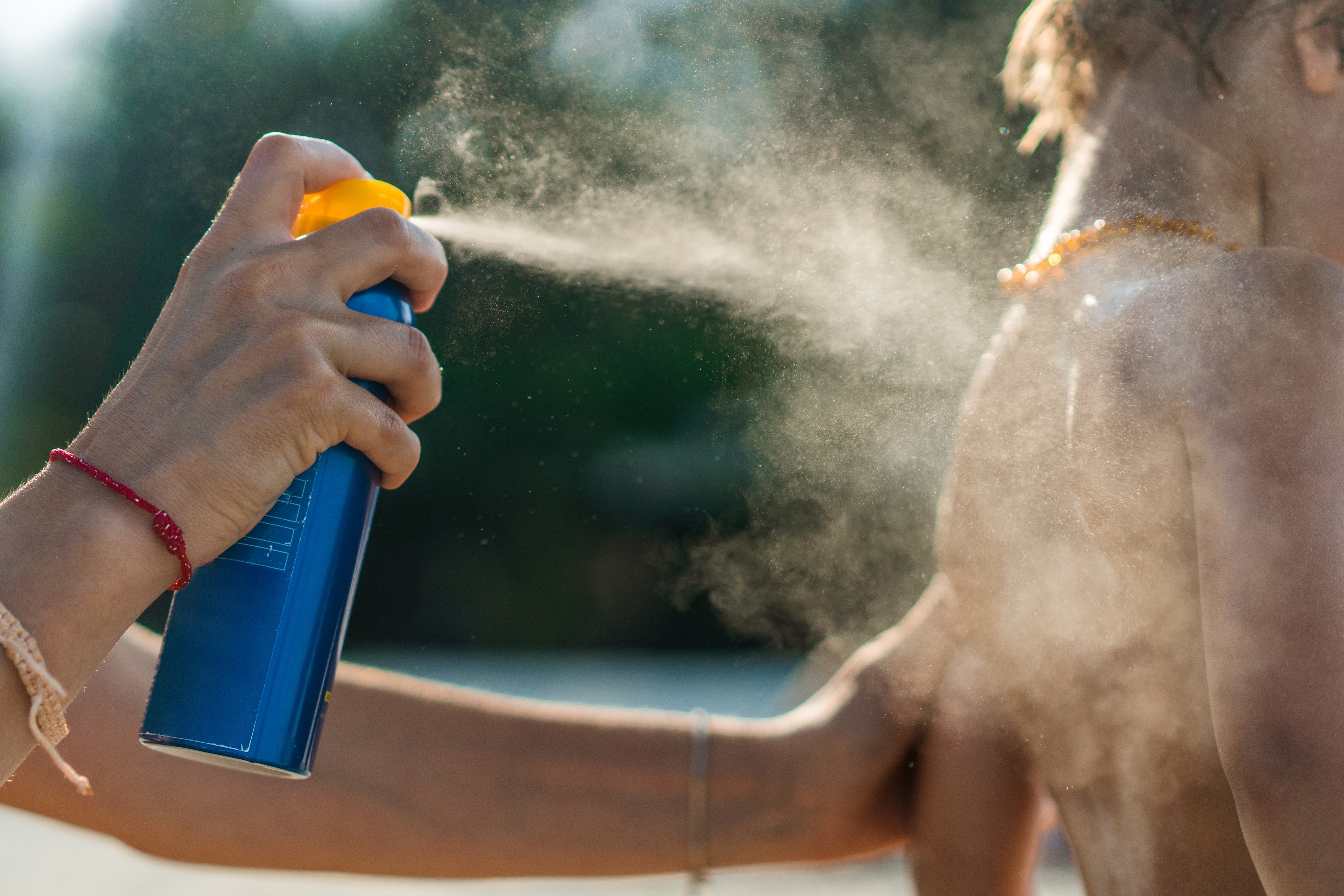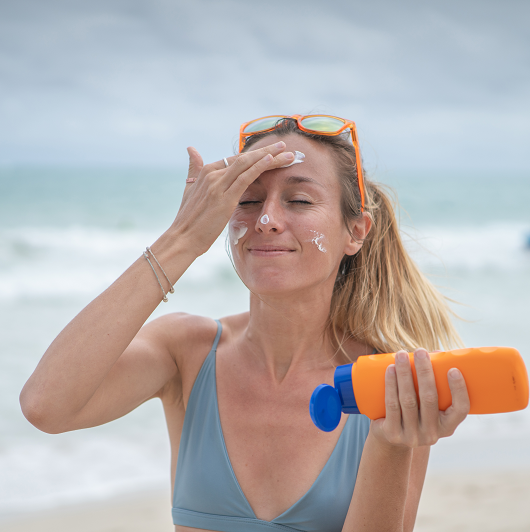

As we spend more time outdoors in the warmer weather, it’s important to protect yourself from harmful ultraviolet (UV) light from the sun. Spray sunscreens may save some time during the application process, but do they offer the same sun protection as a lotion?
Our expert says that spray-on sunscreen can be effective at protecting the skin, as long as you apply it properly (and often enough).
“Some people who use spray-on sunscreen just go through the motions, without checking to see if they’re actually covering their skin properly, and those people may not protect themselves from the sun effectively,” says dermatologist Rachel Rosenstein, MD, Ph.D., “However, if you pay close attention to the application process, it is possible to protect yourself from the sun’s rays with spray-on sunscreen.”
How to apply spray sunscreen
To use sunscreen effectively, you need to put enough product on your skin to provide sun protection, then spread it evenly, so that all areas are well-covered.
If you’re slathering on sunscreen in lotion form, it’s easy to see where you’ve already spread it and which spots you’ve missed. This isn’t as obvious when you use spray sunscreen.
To make sure that you apply spray sunscreen well:
- Pay attention to your skin where you’ve sprayed on sunscreen. Notice whether the skin appears wet and shiny where you’ve just sprayed. If your skin looks dry, you haven’t sprayed on enough of the product.
- Once each section of your skin is moist and glistening from wet sunscreen, rub it in before it dries to make sure that it’s spread evenly. This helps to ensure that you don’t miss any spots.
- If someone else sprays sunscreen on your back, ask them to notice whether your skin appears wet before they stop spraying, and have them rub the sprayed-on product around on your back, so that it covers your skin evenly.
- Don’t spray sunscreen onto your face, because you might accidentally get the product in your eyes or mouth, or you may inhale it. Instead, spray sunscreen into your hand so that you have a small pool of liquid in your palm, then rub your hands together and apply the liquid sunscreen to your face.
- If you’re going to be outdoors all day and you’re concerned that you won’t do as good of a job covering your skin with spray sunscreen, consider using lotion sunscreen at the start of the day, then use spray sunscreen when you reapply. Alternate throughout the day, if you’d feel better using both. Most importantly, remember to reapply.
“Putting sunscreen on once and going to the beach for 8 hours won’t give you enough sun protection,” says Dr. Rosenstein. “You should reapply sunscreen every 1 ½ to 2 hours, depending on the specific product that you’re using. If you spend a lot of time swimming, you may want to reapply even more frequently, because being in the water may remove sunscreen. Sweating and toweling off may also remove sunscreen.”
How to choose an effective sunscreen
Whether you prefer spray or lotion, look for these words on the label when shopping for sunscreen:
- Broad-spectrum, or UVA and UVB protection
- SPF (sun protection factor) of 30 or higher
- Waterproof or water resistant
“People used to select products with lower SPF to get a ‘better’ tan, but to reduce your risk of skin cancer in the future, avoid products with a SPF lower than 30,” says Dr. Rosenstein.
“There was a pretty widespread recall of sunscreen in 2021, many of which were spray sunscreens, after finding a small amount of a cancer-causing chemical contaminant in them, benzene; that has caused some uncertainty about using these products,” adds Dr. Rosenstein. “What’s important to remember is that sunscreen is a key player in keeping your skin protected and if you have concerns about potential contamination of the ingredients, do your research and you can always talk to your dermatologist.”
Next Steps & Resources:
- Meet our source: Rachel Rosenstein, MD, Ph.D.
- To make an appointment with Dr. Rosenstein, or a doctor near you, call 800-822-8905 or visit our website.
Find a doctor near me

Lone Star Tick Can Cause a Lifelong Allergy to Red Meat

Are There Harmful Ingredients in Your Sunscreen?

10 Simple Ways to Improve Your Health
